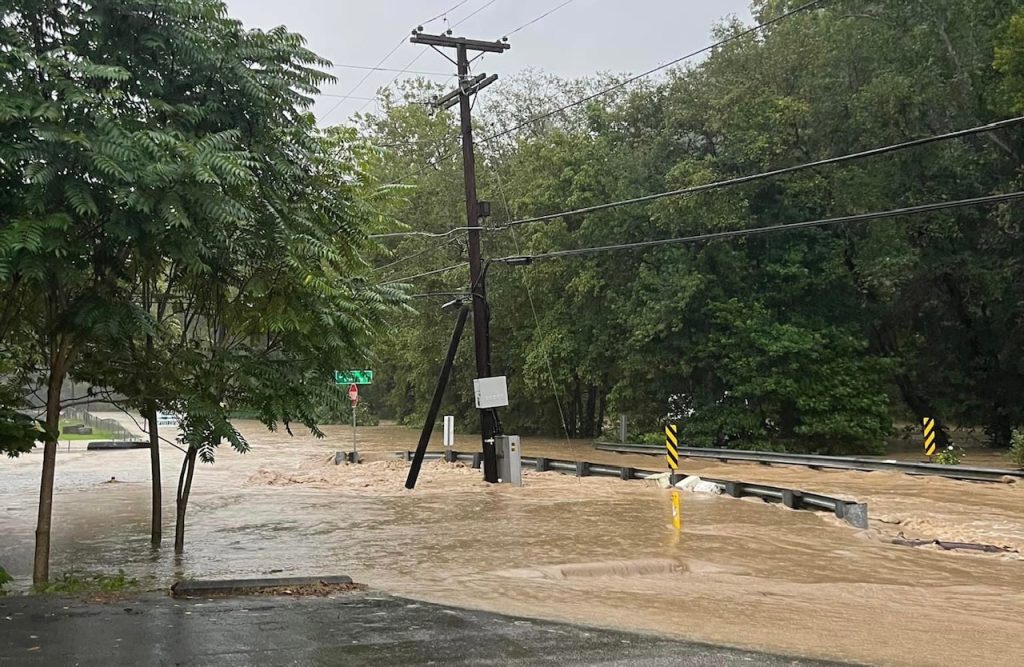Gov. Jim Justice said the opinions of some legislative leaders that he can use some of the $85 million Civil Contingency Fund for emergency relief are wrong. In a press release, Justice said the fund allows no appropriations for emergencies.
“These funds are to be utilized for purposes outlined by the legislature during the appropriation process,” Justice said in the release. “Such as economic development, water and infrastructure projects, higher education capital improvements, and, most recently, to maintain our jails and prisons.”
Justice said in his weekly media briefing Wednesday that he will place on the call for the upcoming special session the proposed and rejected $50 million allocation to the West Virginia Flood Resiliency Trust Fund. That proposal was removed from the budget bill in the last days of the session.
“Instead of pulling together and hoarding back money, for some pet project somewhere, we need to take care of our people,” Justice said. “It’s the people’s money. It’s not the legislators’ money. It is frivolous for us to not create a bucket to where we can help folks,”
Senate Finance Committee Chair Eric Tarr, R-Putnam, said the bucket is already there. He said Justice may be ignorant of the fact that $7 million of the Civil Contingency Fund can be used at his discretion for natural disaster relief
“There’s discretionary spending there,” Tarr said. “And as everybody has witnessed across the state, he uses discretionary authority for spending on a lot of things that had nothing to do with emergency status.”
Tarr said even if the legislature had approved the $50 million trust fund allocation, as a surplus item, that money could not be used until the end of fiscal 2025.
“The flood fund that he’s referencing is a prevention effort,” Tarr said. ”So it’s not as if it was constructed by the legislature as a state form of FEMA”.
Speaker of the House Roger Hanshaw, R-Clay, said there may be a misunderstanding here. He says there’s money available in Fiscal Year 2024 accounts to deal with natural disasters.
“The law as we understand it, provides the governor during a state of emergency the ability to move some money between accounts and utilize money to respond to natural disasters,” Hanshaw said. I just want to make clear that the budget process that we follow is the normal course of business. Nothing that we did or were asked to do during the regular session, or the last couple of months, had anything to do with the current natural disaster that we faced.”
Hanshaw said the executive branch can use its inherent expertise to take action.
“We don’t and shouldn’t be in the business of managing the day-to-day affairs of how the executive branch agencies respond to natural disasters,” Hanshaw said “They actually do that very well. They have a good track record here of how we get emergency responders out quickly to those people that need help. And it’s never been a problem in the past. I don’t think it should be a problem now.”
Justice said with the many challenges of obtaining federal FEMA help, the legislature needs to help create that natural disaster relief funding bucket.
“The problem with FEMA is they want a great number of people that are affected, or a great amount of property damage and everything that’s affected,” Justice said. “We ought to create the bucket and then we’re going to have to continue to replenish the bucket as we go forward. There’s too many instances where really, really good people across this state that we can’t get them qualified for FEMA, but we could still have an emergency fund to be able to help them.”






















